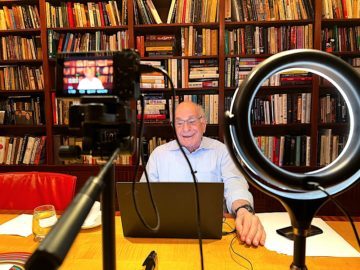From Edge.com:
 Why is it that we may agree in advance that a particular result is a fair test of our theory, then see so much more when the result is known? Why can’t we anticipate our response to results that we do not expect to materialize? The psychology of this is straightforward. The normal flow of reasoning is forward from what you believe to a possible consequence. When someone proposes a serious critical test, you cannot get from your theory to the result without adding an extra wrinkle to the theory. The extra wrinkle is hard to find—if it were easy, this would not be a serious critical test. On the other hand, the result probably follows from the adversary’s theory. The lazy solution is to concede provisionally.
Why is it that we may agree in advance that a particular result is a fair test of our theory, then see so much more when the result is known? Why can’t we anticipate our response to results that we do not expect to materialize? The psychology of this is straightforward. The normal flow of reasoning is forward from what you believe to a possible consequence. When someone proposes a serious critical test, you cannot get from your theory to the result without adding an extra wrinkle to the theory. The extra wrinkle is hard to find—if it were easy, this would not be a serious critical test. On the other hand, the result probably follows from the adversary’s theory. The lazy solution is to concede provisionally.
The situation changes completely when the result is known. It is a constraint and working backward to a slightly wrinkled theory is much easier. It’s not the case that people refuse to admit that they had been wrong. From their perspective they were only wrong in failing to see that the experiment didn’t prove anything. This is where the extra 15 IQ points come from. You can explain surprises that you could not anticipate.
More here.
